I、Introduction
The 2019 Confucian Studies Summer Institute international program offers teachers of Chinese history and culture an opportunity to spend two weeks at an established Confucian Institute reading the Confucian classics with world-renowned experts Roger T. Ames, Chenshan Tian, and other distinguished comparative philosophy and Confucian scholars. The Institutes have been held annually in the summers of 2011 through 2018, for eight years in total, each of which was deemed to be a memorable success. Since its inception, this annual gathering has attracted the brightest teachers and the most committed participants from around the world. In organizing the forthcoming Institute scheduled for July 2019, we again welcome international participants to read the Chinese classics at Danyang and Qufu, the famed birthplace of Confucius. We invite all of those participants and teachers who are intrigued by Chinese culture and philosophy and who seek a more profound appreciation of Chinese cosmology to join us on this unique educational and research journey.
The first decade of the 21st century has witnessed the rise of China as a major force in the world’s economic and political order. For many, this phenomenon raises the important question of what influence the relatively sudden emergence of this antique civilization will exert on an ever-evolving world culture. Answering this question by anticipating the weight and measure of China’s growing impact on other world civilizations has become a serious academic concern. In order to understand and respond effectively to these world-shaping and complex developments in China and around the world, scholars must not only track the ongoing course of current affairs, but equally as important, they must become familiar with and sensitive to Chinese ways of thinking and living, and this means taking Chinese culture on its own terms. Our overarching purpose in offering this summer program is to help our participants gain a clear understanding of the historical evolution of Chinese thought and culture through an in-depth examination of Chinese canonical texts and their interpretive contexts, and through a collaborative study of these works, to make the wisdom of this living tradition their own.
Historically, Western exegetes and contemporary Chinese scholars as well, have tended to read and interpret Chinese philosophy through a decidedly Western cultural lens, and their theoretical methodologies have often been grounded in Western cultural assumptions. While Chinese culture has changed profoundly over the millennia, there are nevertheless persisting cosmological commitments that have given continuity and coherence to this ever-evolving tradition. Our challenge as participants of these Chinese classics is to adopt a hermeneutical approach that will allow us to excavate the uncommon assumptions that give these philosophical texts their authority, and to appreciate the aesthetic and the structural differences through a careful reading of the canons.
Before beginning our journey into Chinese cosmology, we will need to understand clearly the contrast between the metaphysical approach to human experience in classical Greek philosophy that is based on an appeal to first principles, and the more fluid and dynamic assumptions that have influenced a tradition in which the Book of Changes has always been revered as first among the Chinese classics. The 20th century philosopher Tang Junyi takes the postulate “the inseparability of one and many” (yiduobufen guan 一多不分观) as one of the distinguishing propositions of Chinese natural cosmology—a way of thinking about phenomena that stands in contrast to the “One behind the many” model of a classical Greek idealism sustained by the notion of an unchanging eidos as defining of all natural types or species.
What is a human “being”? This was a perennial Greek question asked in Plato’s Phaedo and in his Republic, and as we have seen above, in Aristotle’s Categories as well. And there were many different answers, two of which are pointed at metonymically in Raphael’s famous “School of Athens” fresco by the “up” and “down” gestures of Plato and his student Aristotle. One persistent answer to this question was an ontological one, predating Plato’s psyche with the Egyptian transfiguration of the ka and ba life-forces animating the spiritual entity akh in the afterlife, and with the Pythagorean doctrine of the reincarnation of an immortal soul that anticipates and informs Plato’s Phaedo. From these deep historical roots, the “being” of a human being has come to be understood popularly in Christian doctrine as some variation on a permanent, ready-made, and self-sufficient soul. Early on in the narrative, “know thyself”—the signature exhortation of Socrates doctrine of “recollection” (amnanesis)—is an exhortation to remember, recover, and thus know this soul fully. Each of us is a person, and from conception, has the integrity of being an individual person.
How, or in what way (dao 道), do persons in their roles and relations become consummately human (ren 仁)? This then was the perennial Confucian question asked explicitly in all of the Four Books: in the Expansive Learning (Daxue), in the Analects of Confucius, in the Mencius, and again in Focusing the Familiar (Zhongyong). And the answer even before the time of Confucius was a moral, aesthetic, and ultimately religious one. Persons (always and necessarily plural) become humans by cultivating those thick relations that constitute our native conditions and that shape the trajectory of our life narratives—that is, that guide the whence and whither of our life’s journey within family, community, and cosmos. According to Confucius, one becomes truly human by cultivating the diverse network of intrinsic and interpersonal relations that constitute one’s initial conditions and that locate the trajectory of one’s life force within family, community, and cosmos. The signature exhortation of the Confucian canon is “cultivate your person”— xiushen 修身. This is the ground of the Confucian project of becoming consummate as a person (ren 仁): it is to consciously enlarge, improve, and attempt to maximize those interdependent family, community, and cosmic roles and relationships that one lives on a daily basis. In this Confucian tradition, the cultivation of our humanity is not solitary but irreducibly social. We need each other because if there is only one person, there can be no persons. Becoming consummate in our conduct (人/仁) is an achievement that is necessarily shared. It is something that we must do together, or not at all. In this Confucian understanding of a relationally constituted person, we are uniquely one and pluralistically many at the same time—each of us is a uniquely focused person defined by a field of relations (一多不分).
In pursuing an understanding of Chinese natural cosmology as the relevant interpretive context for this Confucian project we will strive to provide a language that will distinguish this worldview from the single-ordered, “One-behind-the-many” ontological model that grounds classical Greek metaphysical thinking. The notion that one can come to an “understanding” of the “many” by knowing retrospectively the foundational and causal ideal that lies behind them was an underlying principle of Greek metaphysics and was applied by the Greeks to human beings in claiming that one can come to an understanding of what makes us all uniquely human by subscribing to the concept of a discrete self or soul. In our exploration of Chinese cosmology, we will find that this ontological model stands in contradistinction to the symbiotic and holistic focus-field model of order that is illustrated rather concisely in the organic, ecological sensibilities of the Expansive Learning 大學, the first of the Four Books that begins the Confucian project.
In addition, we will review China’s recent history and attempt to identify the nature of the forces that have contributed to the emergence of a dynamic contemporary society in China. By understanding the present in light of the past, we will seek to gain an informed assessment of China’s place in the modern world. We will attempt to identify global trends, and then to understand the dynamism of Chinese society within a larger international context. In addition to exploring the evolution of Chinese thought through an examination of canonical Chinese texts, it is important that participants become familiar with the literature that deals with the historical role of China in world affairs.
The 2019 Confucian Studies Summer Institute international program for teachers of Chinese culture was conceived, like its predecessors, as a uniquely “Confucian” setting for the instruction of Chinese and international teachers and participants of Chinese culture, literature, history and philosophy. However, the content and the scope of the materials, as well as the collaborative and interactive teaching forums, are designed to accommodate both the advanced Chinese specialist and the newcomer to Chinese cultural interests. In the past, our Confucian Studies Summer Programs have attracted a wide range of participants and teachers from a great many vocational and academic backgrounds with a wide range of expertise and experiences, and many of the new arrivals to Chinese culture have been the most enthusiastic. The program will entail readings in Chinese history and philosophy, but a basic familiarity with Chinese culture and classical texts is expected. It goes without saying that in the study of Chinese culture, Chinese language competence would be a great asset, but it is not a requirement of the program because all academic lectures and discussions will be in English. The goal of this Summer Institute is to provide the participants with a knowledge of the Chinese classics and a comparative, hermeneutical approach to these texts that they can apply in their continuing studies of the Chinese canon and in their teaching of Confucianism and Chinese culture to their participants. In order to accomplish this goal, we will undertake a careful and detailed reading of the primary canonical texts that will be sensitive to alternative world views and modalities of thinking, as well as to fundamental linguistic differences.
This training program will be led by Professors Roger T. Ames (Peking University) and Chenshan Tian (Beijing Foreign Studies University), with a special series of lectures delivered by Robin R. Wang (Loyola Marymount University), and Zhao Yanfeng (Peking University). Our time together will be spent reading classical texts and contemporary commentaries, taking part in interactive seminars and discussion groups, joining with colleagues in cultural activities and events, and venturing out on a number of pre-planned field trips.
II、Past Events

1)July 1-31, 2011 – Nishan Birthplace of the Sage Academy
Sponsors: Beijing Sihai Confucian Academy
Co-organizers: Nishan Birthplace of the Sage Academy and Center for East-West Relations, Beijing Foreign Studies University
Faculty: Roger T. Ames, Henry Rosemont, and Chenshan Tian
Participants: 27 including 11 international members
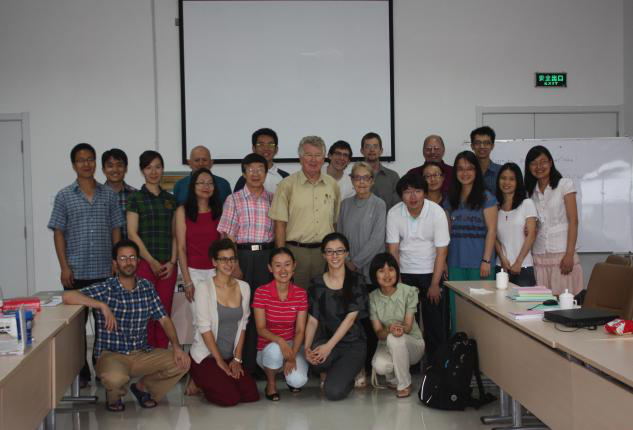
2)June 9-July 3, 2012 – Nishan Birthplace of the Sage Academy
Sponsors: Beijing Sihai Confucian Academy
Co-organizers: Center for East-West Relations, Beijing Foreign Studies University
Faculty: Roger T. Ames, Sor-Hoon Tan, and Chenshan Tian
Participants: 23 including 8 international members.
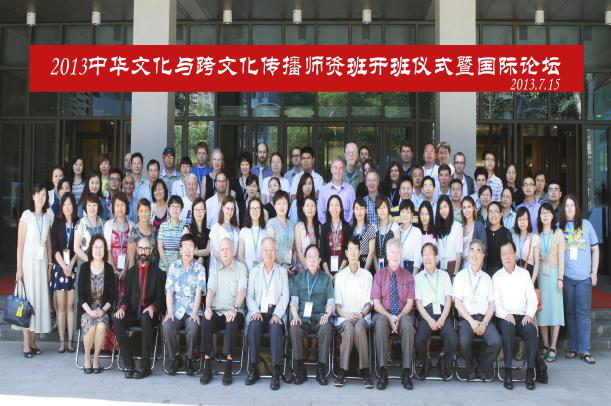
3)July 6-August 3, 2013 – Beijing Foreign Studies University
Sponsors: Confucian Institute Headquarters/Hanban
Co-organizers: Center for East-West Relations and Office of Confucius Institutes, Beijing Foreign Studies University
Faculty: Roger T. Ames, James Hsiung, Chenshan Tian, Robin R. Wang, and Hans- Georg Moeller
Participants: 57 including 19 international members
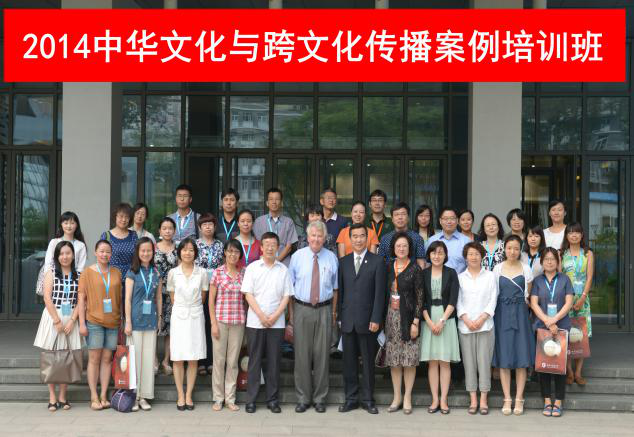
4)July 18-28, 2014 – Beijing Foreign Studies University
Sponsors: Confucian Institute Headquarters/Hanban
Co-organizers: Center for East-West Relations and Office of Confucius Institutes, Beijing Foreign Studies University
Faculty: Roger T. Ames, Chenshan Tian, Robin R. Wang, and Yanhua Zhang
Participants: 33 university teachers of Chinese language and culture
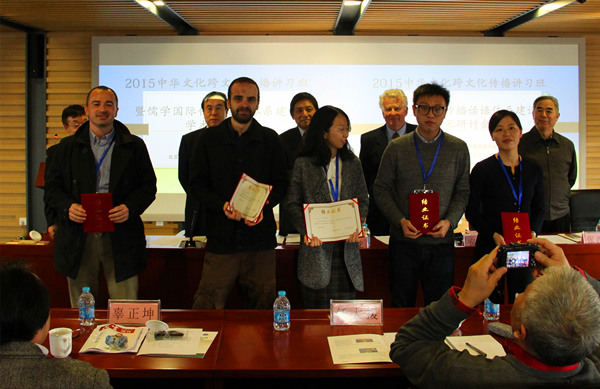
5)December 6-12, 2015 – Beijing Foreign Studies University
Sponsors: International Confucian Association
Co-organizers: Center for East-West Relations and Consortium for Chinese Studies and Intercultural Communication, Beijing Foreign Studies University
Faculty: Roger T. Ames, Chenshan Tian, Robin R. Wang, and Yanhua Zhang
Participants: 65 university teachers and participants in National Leaning and English-language translation (including 6 international participants)

6)July 2-31, 2016 –Nishan Birthplace of the Sage Academy
Sponsors: International Confucian Association
Co-organizers: Center for East-West Relations and Consortium for Chinese Studies and Intercultural Communication, Beijing Foreign Studies University
Faculty: Roger T. Ames, Gu Zhengkun, Chenshan Tian, Li Chenyang, Robin Wang, Hans-Georg Moeller, Zhang Qi, Jimmy Behuniak, and Ian Sullivan
Participants: 21 including 10 international members

7)July 1-15, 2017 –Qufu Chinese Confucius Research Institute
Sponsors: Qufu Chinese Confucius Research Institute
Co-organizers: Center for East-West Relations and Consortium for Chinese Studies and Intercultural Communication, Beijing Foreign Studies University, Bath Spa University & International Academy of Chinese Thought and Culture Center Collaboration
Faculty: Roger T. Ames, Chenshan Tian, Robin R. Wang, and Hans-Georg Moeller
Participants: 41 in total, including 23 international participants and 18 Chinese members

8) July 15-28, 2018 –Association of Chinese Traditional Culture at Danyang
Sponsors: International Confucian Association
Co-organizers: Center for East-West Relations at the Department of International Relations (BFSU), Academy of Chinese Traditional Culture at Danyang, Jiangsu, Consortium for Chinese Studies and Intercultural Communication(BFSU) and Beijing Center for Research in Cultural Exchange
Faculty: Roger T. Ames, Chenshan Tian, Robin R. Wang, and James Behuniak
Participants: 47 in total, including 29 international participants and 18 Chinese members
III、The Sponsors and Co-organizers
Sponsors:
International Confucian Association
The International Confucian Association (abbr. ICA) was jointly initiated by the academic societies of Confucianism in China, South Korea, Japan, the US, Germany, Singapore, Vietnam and the Chinese territories of Hong Kong and Taiwan, the ICA was officially established in Beijing on Oct.5, 1994. Registered under the Ministry of Civil Affairs in July 1995, the ICA is an international academic institution with a legal personality based in Beijing, China. As an international academic and cultural organization, the ICA is a community of Confucian societies and scholars. With the purpose of “studying and carrying forward Confucian thought in order to push for the freedom and equality of mankind and the peaceful development and lasting prosperity of the world,” the ICA strives to unite Confucian societies, scholars and professionals to boost the study, dissemination, popularization and application of Confucianism in the international community. The specific work of the ICA includes: organizing international academic conferences and lectures; carrying out academic research; integrating academic information and resources; promoting the exchange of ideas and sharing experiences in the popularization of Confucianism; advancing education and faculty training in Confucianism; publishing academic works, periodicals and popular books; promoting friendly international exchanges and cooperation; raising funds for international Confucian studies; and exploring other undertakings conducive to the development of Confucianism. The organization structure of the ICA consists of the standing body, the decision-making body, and the advisory body. Under the standing body are the Secretariat, the Academic Board, the Publicity and Publication Committee, the Committee of Education, Dissemination and Popularization, the Fund Management Council, the Committee of International Liaison, the Council of Confucianism and Enterprise Management and the Advisory Liaison Committee. The Congress is the highest decision-making body of the ICA; as a decision-making body, the Executive Board exercises decision-making rights when the Congress is not in session. The advisory body is made up of the Honorary Chairman, the Honorary President and the advisors.
The ICA is willing to build all-dimensional academic ties with Confucian societies in all countries and regions of the world, strengthen friendly cooperation and jointly carry out activities for the study, dissemination, popularization and application of Confucianism. We will be unremitting in advocating the practical application of Confucianism for self-cultivation and the improvement of morality and spirituality, for fostering sound family and social virtues, for building stronger state governance, for promoting national and social harmony, and for building a strong platform of exchanges in international affairs for the common development of all countries.
Beijing Foreign Studies University (BFSU)
Beijing Foreign Studies University, (abbreviated BFSU), was founded in 1941 as the Russian Language Team within the Third Branch of the Chinese People’s Anti-Japanese Military and Political College. Later, under the direction of the Central Committee of the Communist Party of China, it was renamed Yan’an Foreign Languages School. After the formation of the People’s Republic of China in 1949, the school was put under the direction of the Ministry of Foreign Affairs. In 1954, the school became Beijing Foreign Languages Institute, and then in 1959 it merged with the Beijing Russian Institute. In 1980, the Ministry of Education took over the management of the Institute, and in 1994 it was given its present-day name, Beijing Foreign Studies University. Located in the Haidian District of Beijing, BFSU has earned a reputation as one of China’s top universities, and it currently offers instruction in sixty-seven foreign languages, as well as undergraduate and graduate degrees in the various literatures and cultures. Over the past few decades, Beijing Foreign Studies University has recruited many distinguished foreign faculty, and its global standing continues to attract a growing number of international participants to augment its large indigenous Chinese participant population. At present, BFSU offers a wide range of programs in Chinese language and literature, political science, as well as degrees in Chinese law, journalism, management science, and many other academic disciplines. Over the past seventy-four years, more than 90,000 participants have graduated from BFSU, including a talented group of Chinese participants whose foreign language abilities have landed them employment in the Chinese foreign diplomatic service. Over the years, BFSU has contributed more than 400 ambassadors and above 1000 counselors to the Ministry of Foreign Affairs, gaining it a reputation in Chinese academic circles as the “Cradle for Diplomats.”
Co-organizers:
Consortium for Chinese Studies and Intercultural Communication (BFSU)
The Consortium for Chinese Studies and Intercultural Communication was established by Beijing Foreign Studies University in 2013. Through making a full advantage of its comprehensive strengths in various areas, like designing and offering language courses (especially in non-common languages), carrying out research on Chinese culture and overseas Sinology, promoting the Chinese language in the world, as well as conducting international communication and dialogue, the Consortium aims to increase China’s soft power and raise Chinese culture’s influence in the world.
Center for East-West Relations (BFSU)
The Center for East-West Relations (CEWR) was first established in 2008 under the egis of the School of International Relations and Diplomacy, and its head office is located on the East Campus of Beijing Foreign Studies University. The CEWR was founded as an innovative center for the promotion of constructive global dialogue and cooperative interactions between the East and the West. CEWR MISSION STATEMENT: Over the course of the 21st century, the populations of the world’s Eastern and Western nations are sure to encounter new and unique opportunities for growth and prosperity, but they will also need to face ominous challenges that have the potential to ferment serious discord and conflict. On all levels of cultural interaction--social, political, economic, environmental and scientific--the nations of the East and the West will have to contend with competing interests and goals. Therefore, these countries will need to come together to negotiate fair commerce and good relations through responsible and sensitive dialogue. The rapid advances in media technology over the past few decades have shrunken the world and have brought formerly remote and isolated regions of the world into close contact. The so-called information revolution has led to a growing international awareness of the profound diversity and complexity of the world’s cultures, thereby making mutual understanding and accommodation absolutely necessary to global peace. Recent history has taught us that the lack of knowledge and the absence of cultural tolerance in states and populations can transform contrasting and conflicting world-views into ethnocentrism and fundamentalism. The important lesson to be learned is that suspicion and distrust can quickly mutate into political, cultural, ethnic, religious, and racial conflict. The other side of this lesson is that if these differences are managed with wisdom and sensitivity, they can provide the inspiration necessary for a more varied, rich, resourceful and harmonious global community. The Center for East-West Relations is a leading sponsor of a number of events and programs that encourage cross-cultural understanding and respect. In addition to organizing the Confucian Studies Summer Institute, the Center also sponsors interdisciplinary conferences on philosophy, international relations, business, and political affairs, such as the WE Forum. In past years, the WE Forum’s conference titles have included the following themes: “Summit on Global Economic and Cultural Issues: The Global Financial Crisis and its Cultural Implications” (2009), “Confucian Scholarship in the 20th Century and the Renaissance of Eastern Civilizations” (2010), and “Confucianism and the Sinicization of Marxism” (2011). The Center for East-West Relations is also the founding institution of the Nishan Confucian Studies Summer Institute International Program for Teachers of Chinese Culture.
Association of Chinese Traditional Culture at Danyang
Founded in 2012, the Association of Chinese Traditional Culture at Danyang is a organization to promote social welfare approved by the Department of Civil Affairs and under the leadership of the Department of Information to perpetuate the transmission of traditional culture.
Since the establishment of the Association, under the careful guidance of experts at each level of leadership, and with adherence to the core values of socialism, it has taken as its mission to “promote canonical learning and the social values, pursue the virtues of personal cultivation, and support the public good. The Association with the Chinese classics as the primary resource is actively carrying out activities that transmit traditional culture to enrich the growth and learning experience within our schools, families, communities, and enterprises. Through voluntary participation and expert guidance, and with the generous support of enlightened business leaders committed to public welfare, the Association has aspired to the Danyang symbol of the small hand holding the big hand.
Over the past six years, our Association has promoted public interest in Ancient Chinese Studies. The Association’s model of voluntary service has been acknowledged at all levels of leadership and among academic experts, and has received the approval of parents and participants, as well as approbation from the community. All elements of the Association in all of its parts, including its regulations, organisational structure, teacher teams, volunteer organisations, fiscal matters, and the evaluation of the society have benefitted from having sought verification from practice.
IV、The Team of Professors
The Main Speakers
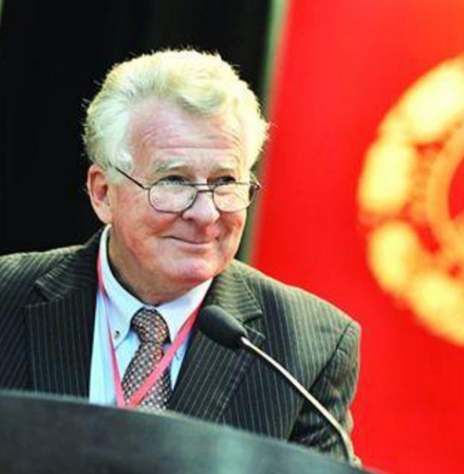
Professor Roger T. Ames
Roger T. Ames is Humanities Chair Professor at Peking University, a Berggruen Fellow, and Professor of Philosophy Emeritus at the University of Hawai’i. He is the past editor of Philosophy East & West and the founding editor of China Review International. Ames has authored many interpretative studies of Chinese philosophy and culture: Thinking Through Confucius (1987), Anticipating China (1995), Thinking from the Han (1998), and Democracy of the Dead (1999) (all with David L. Hall), and most recently Confucian Role Ethics: A Vocabulary (2011). His publications also include translations of classical Chinese texts: Sun-tzu: The Art of Warfare (1993); Sun Pin: The Art of Warfare (1996) (with D.C. Lau); the Confucian Analects (1998) and the Chinese Classic of Family Reverence: The Xiaojing (2009) (both with Henry Rosemont), Focusing the Familiar: The Zhongyong (2001), and The Daodejing) (2003) (with David L. Hall). Almost all of his publications are now available in Chinese translation, including his philosophical translations of Chinese canonical texts. He has most recently been busy compiling the new Blackwell Sourcebook of Classical Chinese Philosophy, and with writing articles advocating a conversation between American pragmatism and Confucianism.
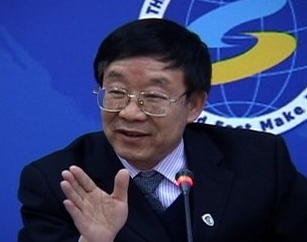
Professor Chenshan Tian
Chenshan Tian earned his Ph.D. in Political Science from the University of Hawaii at Manoa, and he has lived, taught and given public lectures in Hawai’i, in North Dakota, and in China. Professor Tian started his teaching career in China at Beijing Foreign Studies University in 2005 and is currently the Director of the Center for East-West Relations, which operates under the egis of the School of International Relations and Diplomacy at BFSU. In October 2009, Dr. Tian was elected to the post of Director of the International Confucian Association. As a contemporary Chinese-American academic, Chenshan Tian specializes in comparative Western and Chinese political philosophy. Recently, his research has focused on exploring the differences between Eastern and Western world views, alternative ways of thinking, and different forms of scientific understanding. His book, Chinese Dialectics: From Yijing to Marxism, focuses on explaining the fundamental differences between Chinese and Western Marxism. This work makes the simple but profound observation that much of the history of Western thought, including scientific thought, has essentially been derived from, and limited by the Christian faith in a transcendent “God.” This model can be expanded to involve an ontology of Being and Nonbeing, a teleological order from beginning to end, and a plethora of dualisms, such as a final distinction between the natural world and human culture, time and space, mind and body, ontology and epistemology, and so on. Tian advocates an intellectual world derived from the Yijing, which seems much more in tune with the mysteries of organic life, with human behavior, and with the nature of material and energy inherent in quantum mechanics and in the relativity theories of modern physics. At Beijing Foreign Studies University, Dr. Tian teaches courses in “Political Thought and Theory,” “Chinese Government and Politics,” “Comparative Foreign Policy,” “American Politics,” “Modern Chinese Philosophy,” “Media and Politics,” “Comparative Chinese and Western Philosophy,” and “Modern Chinese History.”
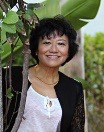
Robin Wang
Robin Wang is a Professor of Philosophy at Loyala Marymount University, Director of Asia-Pacific Studies, Researcher at Stanford University's Center of Human Behavior Research, 2016-2017 and the current President of the Global Association of Asian and Comparative Philosophy. She recently finished a book entitled Yinyang: The Way of Heaven and Earth in Chinese Culture which was published by Cambridge University Press. She is the editor of Chinese Philosophy in an Era of Globalization and Images of Women in Chinese Thought and Culture: Writings from the Pre-Qin Period to the Song Dynasty, and she is co-editor of Internal Alchemy: Self, Society, and the Quest for Immortality and Reason and Insight: Western and Eastern Perspectives on the Pursuit of Moral Wisdom.
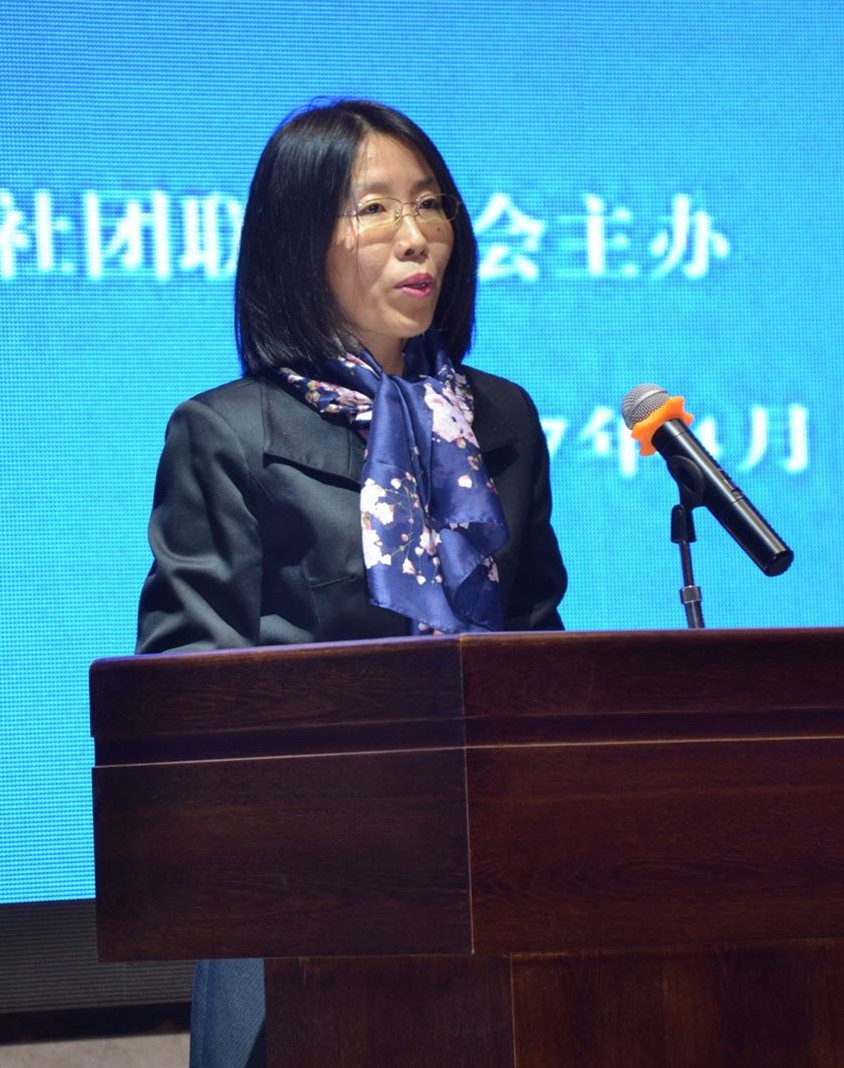
Zhao Yanfeng
Associate Professor of the School of Chinese as a Second Language at Peking University, former Chinese Chairman of the Confucius Institute in Ritsumeikan Japan, served as an instructor at the Traditional Culture Society in Peking University. Her research direction is Chinese culture and cross-cultural studies. Beginning from 2013, she continuously participated in the teaching work in four of Roger T. Ames’ International Confucianism and Chinese Cross-Cultural Workshops, having a deep understanding of the theory of “Yiduobufen”. She has given hundreds of lectures in the studies of Chinese ancient civilisation entitled A World Trend – Chinese Wisdom to universities, business enterprises and government departments in many parts within China. During the period of exchange at the American Dickinson College from 2017 to 2018, she toured to many parts of the United States and Canada and gave twenty one lectures with the theme being the World Trend of Educational Direction and Channelling East and West – Orientation in Life, to help overseas Chinese recognise the historical transition in the renaissance of Chinese culture, understand the deep traditional gene of the contemporary Chinese system, to stimulate the cultural self-confidence and sense of mission in everyone and trigger an enthusiastic response. In 2019 from January to February, she was invited to Italy, Finland, Sweden, Germany, the United Kingdom and Spain to give nineteen lectures, to make more people understand the “Yiduobufen” viewpoint and the importance of the fusion of mutual benefits.
V、Activities
(1)Outdoor activities
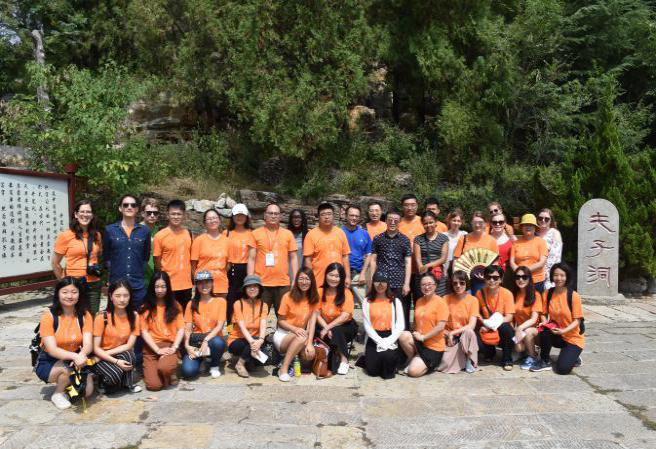
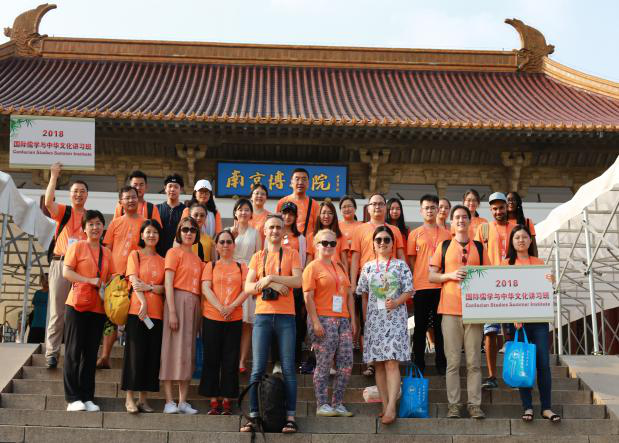
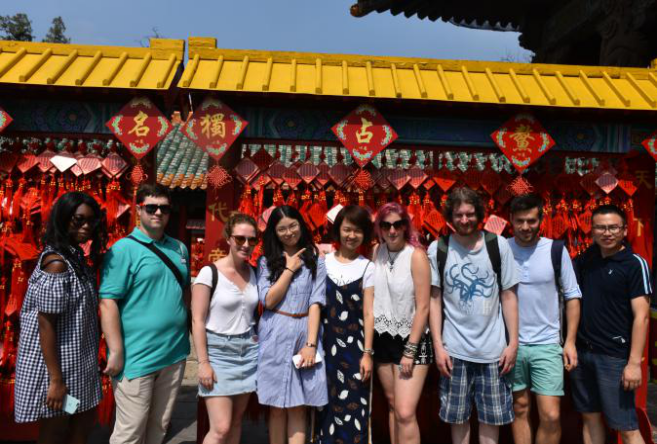

(2)In the class

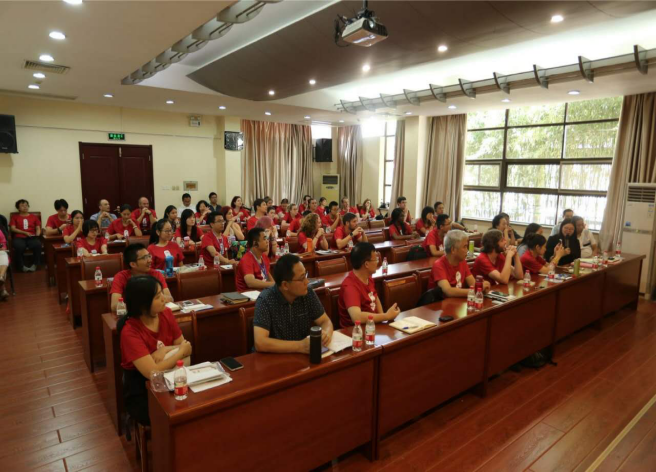
(3)Cultural activities(Paper-cutting、Tea Ceremony、Taiji、Traditional Chinese Medicine)
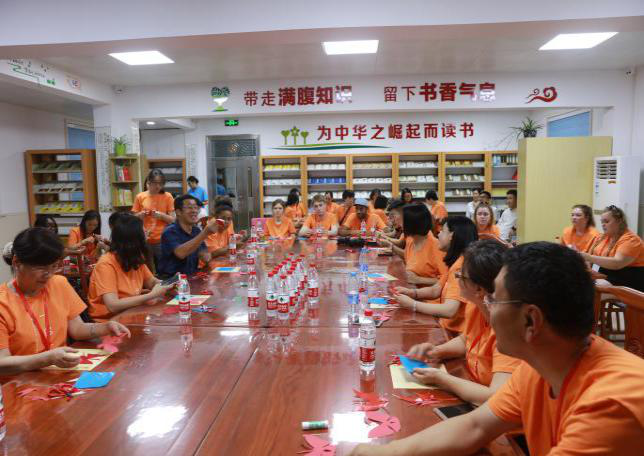
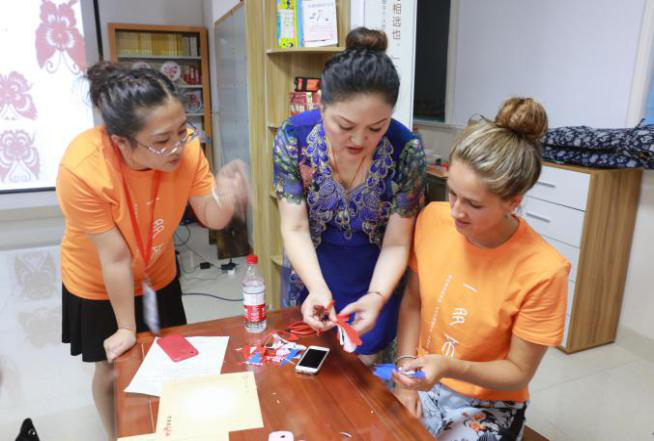
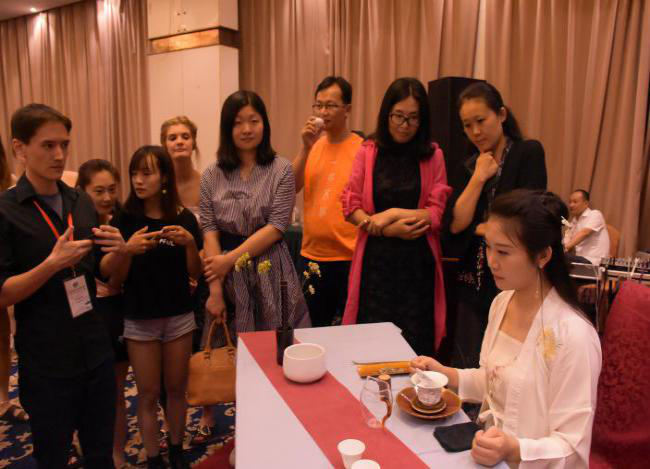
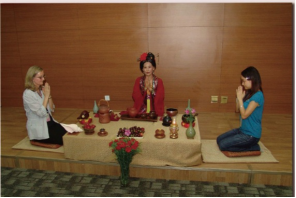
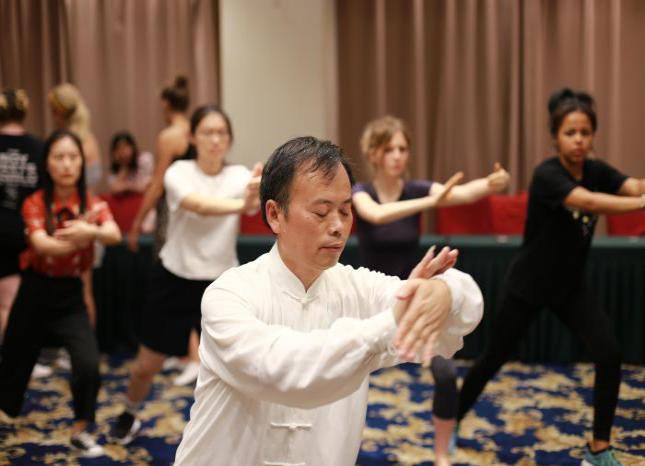
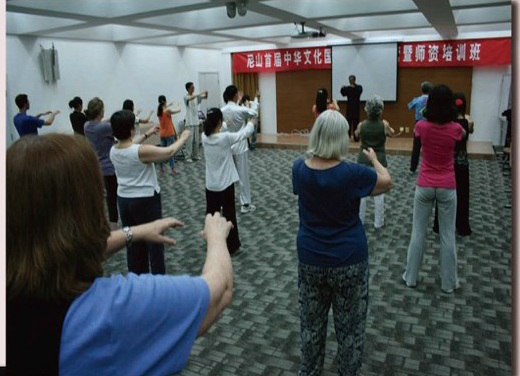
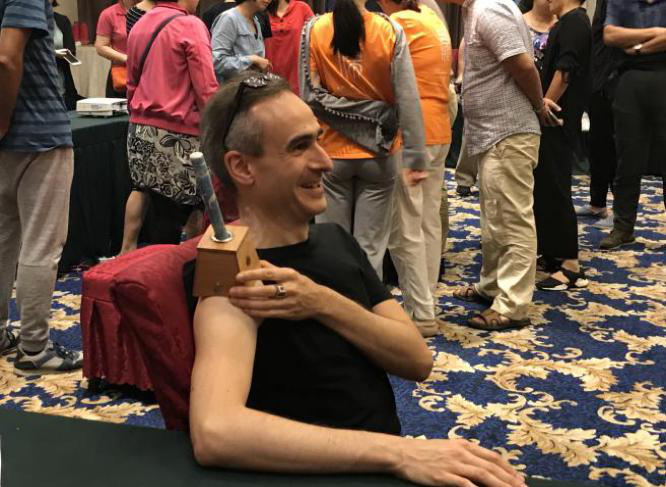
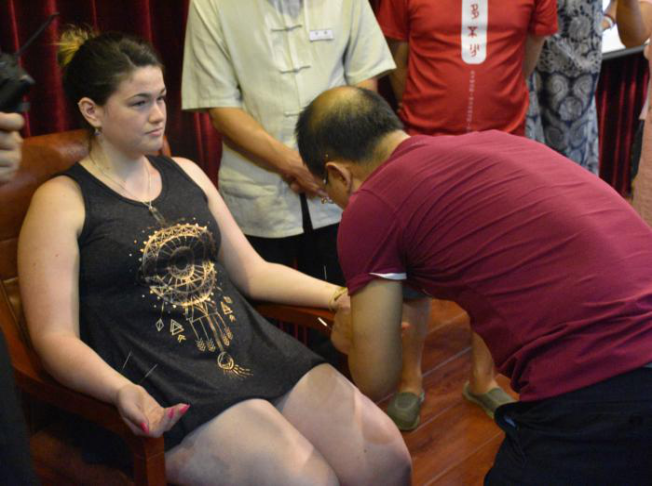
VI、Admission Information
I. Target Groups and Quota:
a) Teachers and students of Master’s or PHDs who currently or intend to engage in Sino-Western Cultural Comparative Studies, Cross-Cultural research, Overseas Chinese research or any related academic research.
b) Workers or students who currently or intend to engage in English translation or English cultural translation.
c) Personnel who currently or intend to engage in Chinese cultural dissemination, international cultural exchange, the media, economics and other fields of communication.
d) Intellectuals who are interested in Chinese traditional culture.
II、Classes setting:
a) Chinese-English class:50 peoples Duration: 13th – 19th July, 2019
b) English class:50 peoples Duration: 20th – 27th of July, 2019
III、Important Dates:
Sign-up Deadline:1st of June 2019
Registration Date:13th of July 2019
Duration of Course:14th to the 27th of July 2019
IV、Other items:
a)Textbook:《Instant Enlightenment: The Indivisible One and Many》
b) Graduation requirements: an essay related to the topic “The Interpretive Contexts of Sino-Western Culture and the Chinese Culture”.
c) Leave of absence: participants are generally not allowed to be absent or ask for leave.
VII、Course Information
1. Course Arrangement:
1) July 13, 2019: participant registration (Location: Jiangsu, Danyang City)
2) July 14, 2019 Morning: Opening Ceremony (Location: Jiangsu, Danyang City)
3) July 14-18, 2019: International Confucianism and Chinese Culture Institute (Class times: 9:00am to 11:30am; 2:00pm to 4:30pm; 7:00pm to 8:30pm), (Location: Jiangsu, Danyang City)
4) July 19, 2019: Cultural Activities (Location: Jiangsu, Nanjing)
5) July 20-24, 2019: International Confucianism and Chinese Culture Institute (Location: Jiangsu, Danyang City)
6) July 25, 2019: Arrival in Qufu (Location: Shandong, Qufu)
7) July 26, 2019: Qufu Cultural Activities (Confucian Temple, Confucian Family Mansion, Tomb of Confucius) (Location: Shandong, Qufu)
8) July 27, 2019: Closing ceremony at the Confucian Academy in Beijing, where the Certificate of Completion are awarded (Location: Beijing)
2. Class Schedule:
(for reference only)
Week One (Chinese-English Classes)
|
Dates |
9:00am-11:30am |
2:00pm-4:30pm |
7:00pm-8:30pm |
|
13th July Saturday |
Registration and Accommodation in Danyang |
Welcoming Banquet |
|
|
14th July Sunday |
International Symposium on International Confucianism and Chinese Thinking, Culture and Cross-Cultural Transmission and the Opening Ceremony of 2019 Confucian Studies Summer Institute |
||
|
15th July Monday
|
Chenshan Tian: Outside Mt. Lu: Effective Methods of Transmitting Chinese Culture |
Robin Wang: China and World: Is There a Such Thing as Chinese Spirit? |
Cultural Activity: Paper-cut |
|
16th July Tuesday
|
Chenshan Tian: The Philosophy of Yiduoeryuan by Thinkers from Ancient Greece to the Enlightenment |
Zhao Yanfeng: Core Differences between Chinese and Western Cultures |
Self-Arrangement |
|
17th July Wednesday
|
Zhao Yanfeng: The Idea of Yiduobufen within Chinese Language and Characters |
Robin Wang: Why is the pairing of Yin and Yang a unique and important notion in Chinese culture |
Cultural Activity: Taiji |
|
18th July Thursday
|
Chenshan Tian: Chinese Structure of Sinified Marxism |
Zhao Yanfeng: The Differences in the Cosmology and View-of-Life in the Chinese and American Political Systems |
Self-Arrangement |
|
19th July Friday
|
Visit to Nanjing’s Traditional Cultural Sites |
Evening Gathering Event, making Chinese dumplings |
|
Week Two: (English Classes Only)
|
Dates |
9:00am-11:30am |
2:00pm-4:30pm |
7:00pm-8:30pm |
|
20th July Saturday
|
Roger T. Ames: Righting the Asymmetry in Making Cultural Comparisons |
Robin Wang: Being With Dao: A Philosophy Guide For Life |
Cultural Activity: Tea Ceremony |
|
21st July Sunday
|
Chenshan Tian:
The Chinese have drawn a duck in instances where we should expect to see a rabbit : Western Obstacles in Understanding China
|
Roger T. Ames: |
Self-Arrangement |
|
22nd July Monday
|
Roger T.Ames: The Book of Changes and the Inseparability of One and Many |
Chenshan Tian : Chinese Dialectics: From YiJing to Marxism |
Cultural Activity: Traditional Chinese Medicine |
|
23rd July Tuesday
|
Roger T. Ames: |
Reed Dasenbrock : Eza Pound's Confucianism |
Self-Arrangement |
|
24th July Wednesday
|
Roger T. Ames: |
Chenshan Tian: The Importance of Comparative Hermeneutics |
Closing Ceremony |
|
25th July Thursday
|
Group discussion, Speech |
Taking the High-Speed Railway to Qufu |
Self-Arrangement
|
|
26th July Friday |
Nishan Birthplace of the Sage Academy, Confucius Family Mansion, the Confucian Temple and the Tomb of Confucius |
Self-Arrangement |
|
|
27th July Saturday
|
Closing Ceremony |
Participants return home |
|
VIII、Accommodation

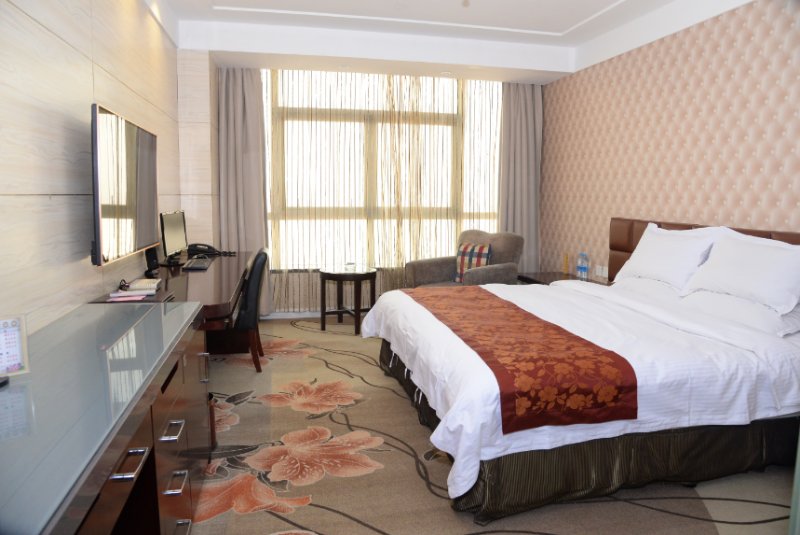


IX、Tuition Fee
I. Tuition Fees:
Method 1: Self-Arrangement
Workshop Registration and Training Fees will cost ¥4000 for the duration of the workshop (each week being ¥2000). Participants who select this option must arrange their own accommodation, transportation and inspection fees. However, meals during the breaks in the workshop are still organised by the host.
Method 2: Complete Arrangement
The workshop fees will be ¥8000 in total (each week being ¥4000). This includes the expenses for catering, accommodation, transportation, classes, activities, materials, inspection.
[Either one of the methods described above can be selected according to your own circumstances, certificates of participation will be awarded together]
II. Online Registration and Admission:
a)The application form for the Confucian Studies Summer Institute of 2019 can be downloaded here: http://en.yiduobufen.com/index.php/index/down.html
b)Send the completed application form to the email address 1185123257@qq.com. Your email should be named “International Confucian Studies Summer Institute of 2019 + [participant’s name]”
X、Contact Us
The completed application form can be photocopied or scanned and sent to the following addresses:
Telephone:+86 (0) 10 8881 6235
Mobile (WeChat Number): 18001197375 (Sun Zhihui)
Email: 1185123257@qq.com
304271932@qq.com
Address:307 International Building, Beijing Foreign Studies University, 19 Xisanhuan North Avenue, Haidian District, Beijing City, China